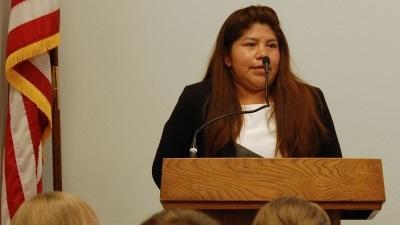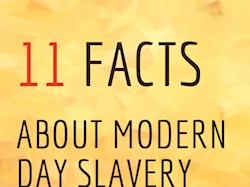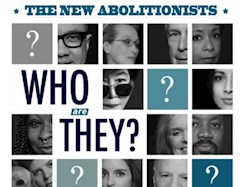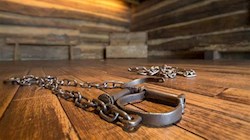January 01, 0001 Infographic
In 2001, Flor Molina became a victim of slavery in the garment industry in Los Angeles. She was an easy target: a desperate mother who had just lost her baby because she didn't have the money to hospitalize her sick child.
This article originally appeared on CNN. View the original article here.
With the hope of starting her own business to support her three other children, Molina began taking sewing classes. It was Molina's sewing teacher that would eventually facilitate her 40 days of enslavement in the U.S.
“My sewing teacher was approached by a trafficker because she knew a lot of women who knew how to sew and would be desperate to come to the United States to make money. There were no opportunities in my town, so when my sewing teacher told me about the opportunity to go to the U.S., I was definitely interested.
I had to leave my mom and my children behind. I was told that when I got to the U.S. I will have a job so I could send money home, food and a place to stay.
“When I arrived in Los Angeles, I quickly realized it had all been a lie. My trafficker told me that now I owe her almost $3,000 for bringing me to the U.S. and that I had to work for her in order to pay her back.”
I was forced to work 18 hours a day making dresses that were being sold for $200 department stores. When all the workers in the factory got to go home, I had to clean the factory. I was forced to sleep at the factory in a storage room, and I had to share a single mattress with another victim. The other workers in the factory were able to come and go at the end of their shift. I was forbidden to talk to anyone or from putting one step outside of the factory. I worked hard, and I was always hungry. I was given only one meal a day, and I had 10 minutes to eat. If I took longer, I was punished. After only a few weeks of being there, one of my co-workers started suspecting that something was not right. She had realized that I was always there in the morning when she got there and was working at night after everybody left. She gave me her phone number on a piece of paper and told me that if I needed help, I could call her.
I was so afraid, I didn't really trust anybody. My trafficker told me that if I ever go to the police, they wouldn't believe me. She said that she knew where my children and my mother lived and that I wouldn't want them to pay the consequences. This went on for 40 days, but I tell you it felt like 40 years. I thought I was going to die. I thought I would never see my children again. I was sick with worry about how my children were in Mexico and how they didn't know what happened to me.
After weeks of begging my trafficker to let me go to church, she finally let me go. The moment I set foot outside the factory, I decided not to go back. I went to a pay phone to call my co-worker, but I didn't know how the pay phone worked. After a while, someone walked by, and I asked him if he spoke Spanish, and he did. He helped me dial the phone number, and my co-worker came and picked me up and took me to a restaurant.

I was found by FBI agents who were already investigating my trafficker. They connect[ed] me with CAST (Coalition to Abolish Slavery and Trafficking), a non-profit group. CAST found me shelter and helped me with all my basic necessities because I had nothing when I escaped. Ultimately, my trafficker was charged with labor abuse and got a light sentence - only six months of house arrest.
Even though my enslavement doesn't define me as a person, it makes me who I am today. I am an advocate against slavery. I am a survivor of a crime so monstrous that the only way to move forward is by fighting back. I am not the only one. There are other survivors that are fighting back with me. We are part of a group called the survivors caucus at CAST, and we are working to educate people, law enforcement and communities using our stories. The caucus is a network of survivors where we feel safe and supported, and we have advocacy to end slavery for good. Even though we were once victims, we are now able to impact social change.”
Related Actions
Watch Gary Haugen's TED talk
Understand and learn how to act against poverty
International Day for the Remembrance of the Slave Trade and its Abolition
August 23rd is International Day for the Remembrance of the Slave Trade and its Abolition. Honor it by planning a trip to the National Underground Railroad Freedom Center in Cincinnati, OH.










